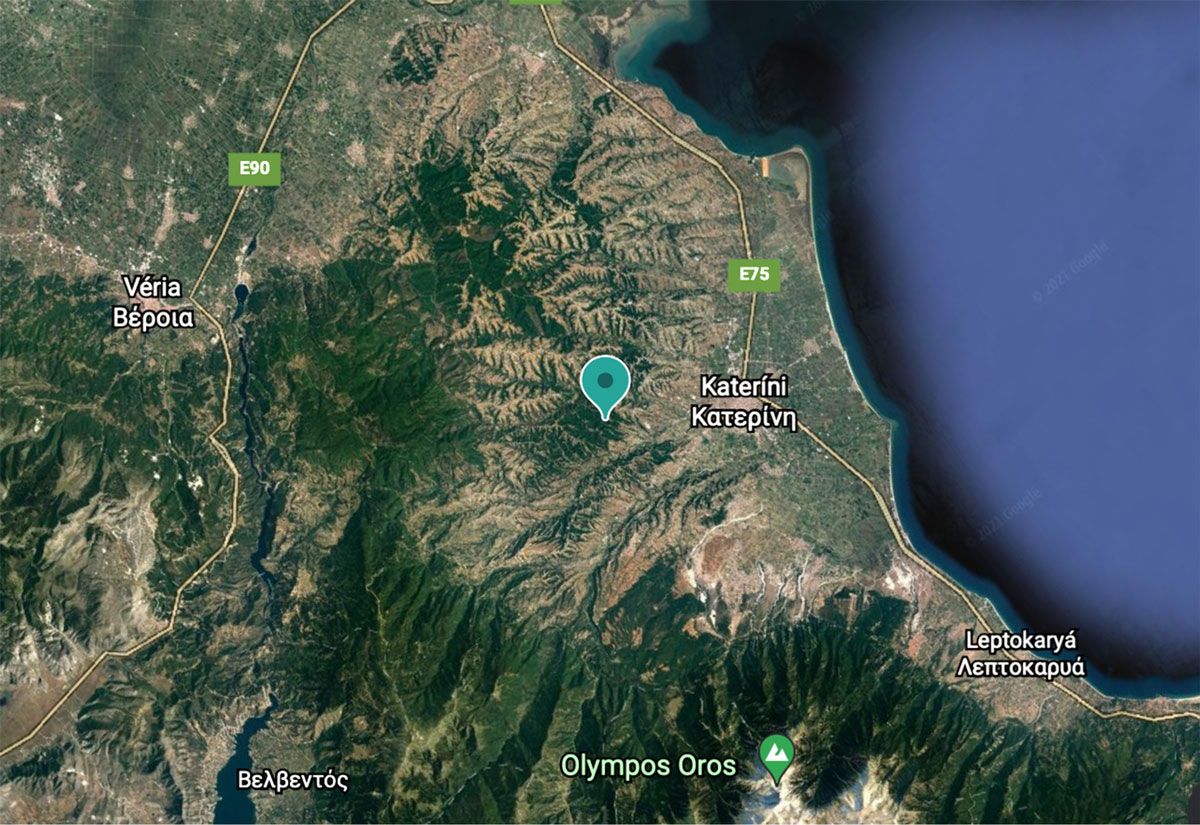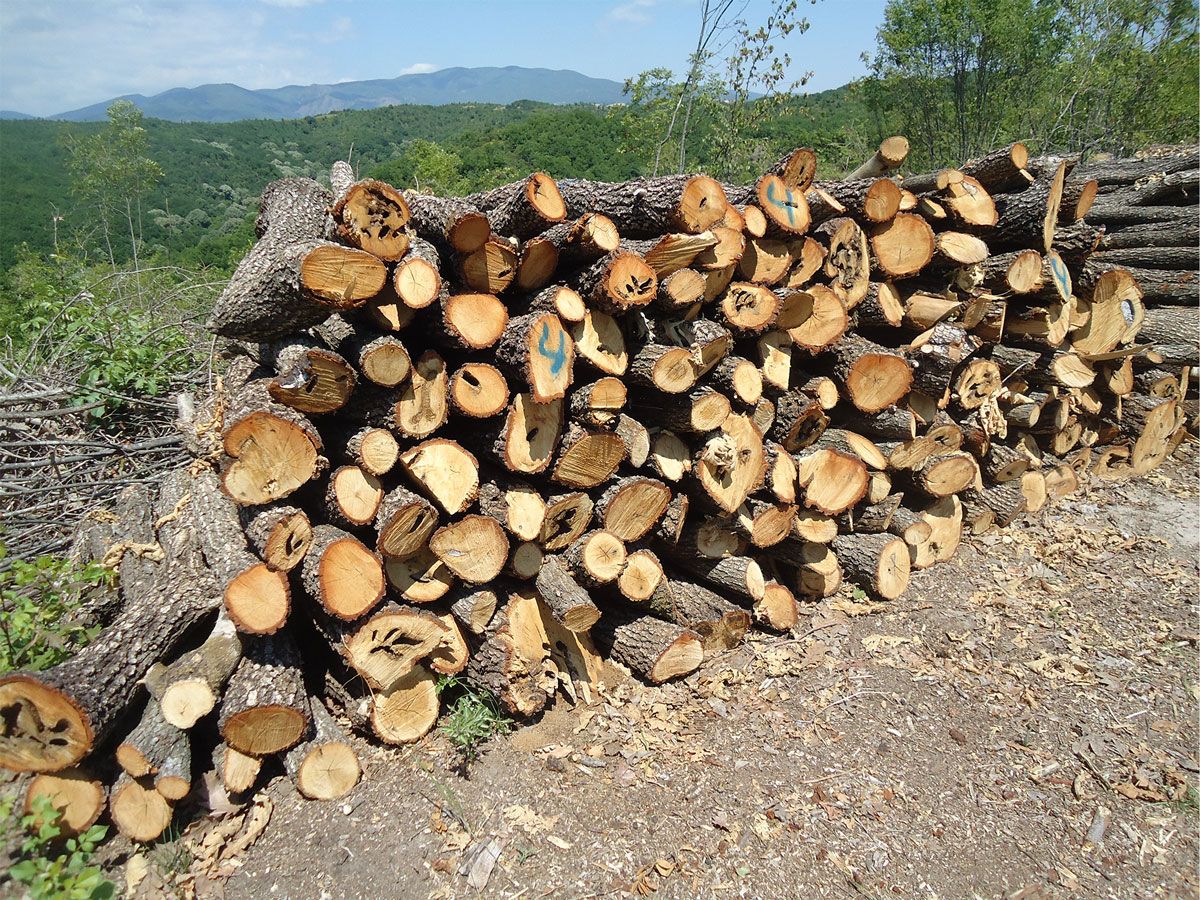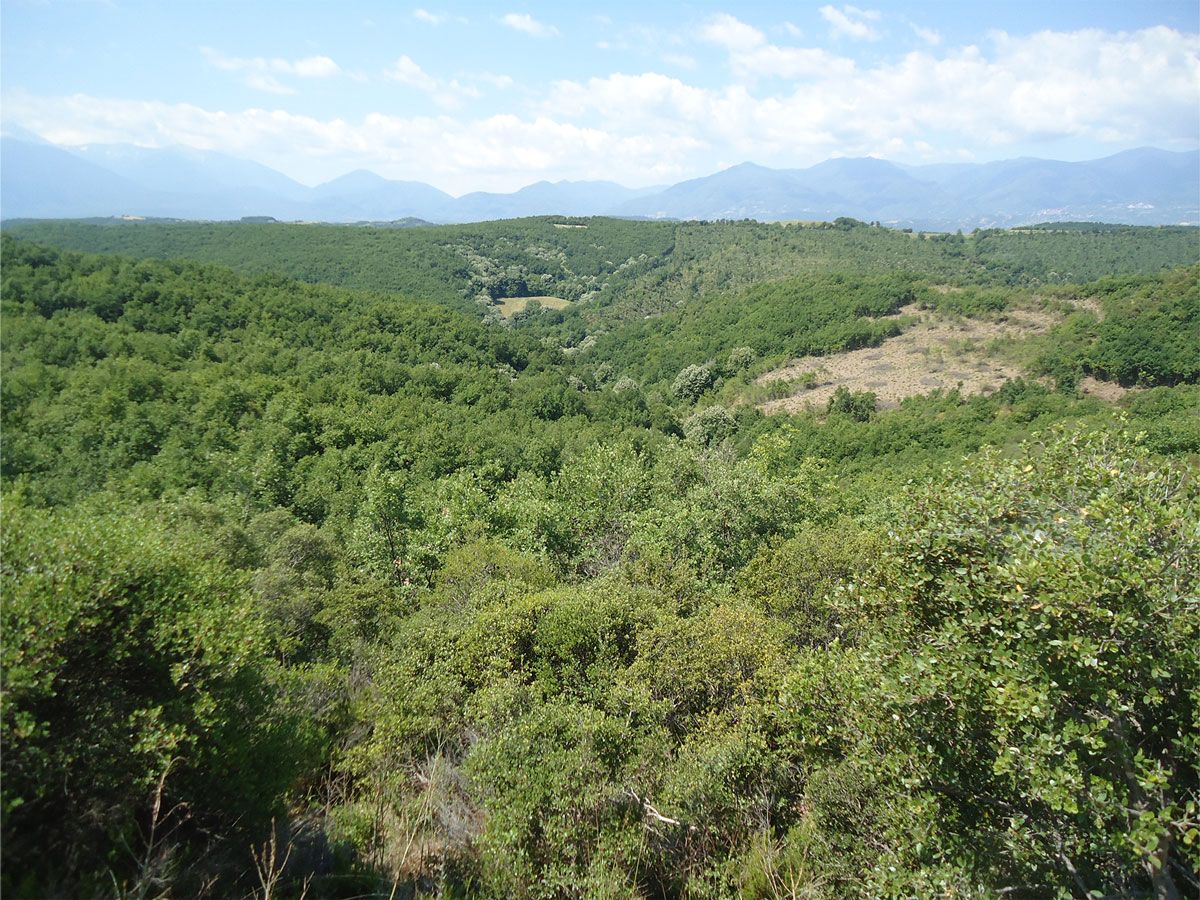
Composed mostly of Hungarian oaks, the stand was subject to short rotation cycles for wood production, prior to the project. This management method involves disturbing the environment every 20 years to cut wood, which has consequences for the sustainability of ecosystems and the preservation of soil quality and biodiversity.

Another issue is the adaptation of Greek forests to climate change. While the oaks composing the Aronas forest were suffering from climate change, the issue of forests management in Greece is now discussed at a national level.Indeed, in order to increase the resilience of the forest cover, a diversification of planted species as well as a sustainable management of forests is required.
Thus, in Aronas, the 2021-2022 season is synonymous with change.
Regenerating and enriching the forest of Aronas
On the ground, 33,000 trees of different species, that grew in local nurseries, were planted to diversify the stand. Oriental hornbeam, flowering ash, lime and plane trees have thus joined the Hungarian oaks to create a mixed forest, far from the monoculture model that prevailed and tends to weaken forests. At the same time, silvicultural operations are undertaken to support the natural regeneration of the oaks, which includes clearing and cleaning. In the background, important changes regarding the management of this forest, are happening. The rotation cycles will now be extended in order to manage the forest in a more reasoned and sustainable manner.

In the long term, this approach will favour the presence of biodiversity within the Aronas forest, contribute to enriching the soil and limiting its erosion while increasing the capacity of the stand to store carbon and thus participate in the fight against climate change.
This project, which will be monitored until 2026 by Reforest'Action and its local partner, the Forestry Research Institute of Thessaloniki, was made possible thanks to the support of Johnson & Johnson, Alpha Bank and Valeo.